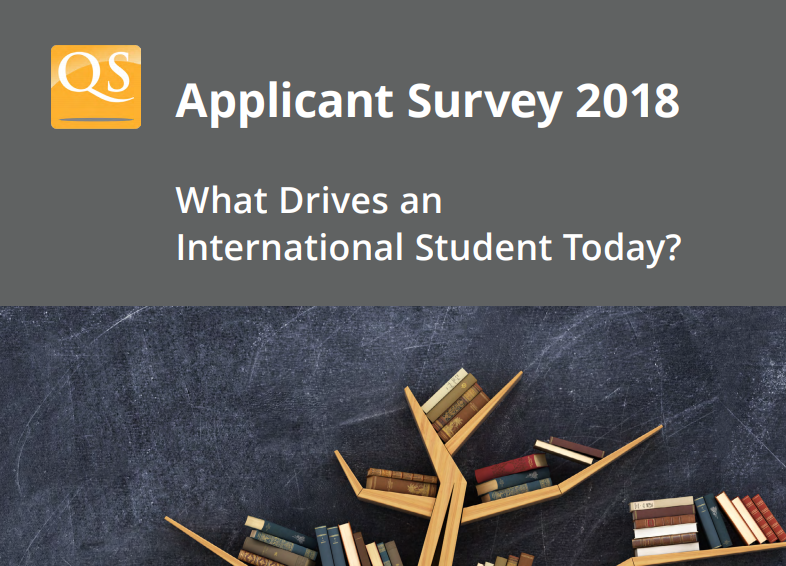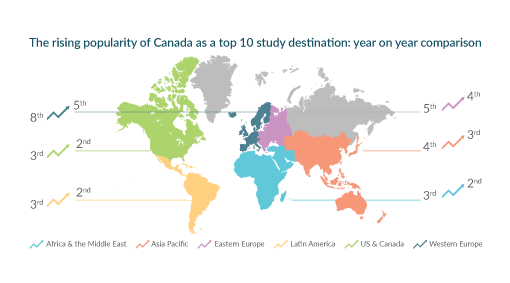
Canada is replacing the US and UK as the most popular study destination in a number of regions, new research in the ‘QS Applicant Survey 2018: What Drives an International Student today?’, by QS thinktank shows.
The report, launched annually, gives an incredibly global outlook. Featuring over 16,000 prospective international students, the report authors attempt to delve into applicant motivations, decision making processes and destination preferences in different contexts worldwide.
The US and the UK remain the top destinations overall, however alternative English-speaking destinations are creeping to the top, and outperforming them in many cases. This raises interesting questions about what, exactly, the shape of international student mobility will look like in the coming decades.

As geopolitical events in the two most popular host markets, the US and the UK are placed under an international spotlight, the impact of immigration restrictions is potentially evidenced in the participants’ response to the survey. The report examines the backlash to Trump’s travel ban on Muslim-majority nations and finds an overall negative reaction. Whilst Iraq has now been omitted from the ban, it was included at the time the survey took place. The results are as follows:
- In Iraq the US has fallen from 1st to 4th most popular country preference;
- In Libya, the US has dropped from 1st to 3rd;
- In Sudan, it has dropped from 2nd to 3rd;
- In Iran, it has dropped from 1st to 3rd;
- In Somalia, it has dropped from 1st to 3rd;
- However, students in Yemen appear unfazed, with the US rising from 3rd to 1st among respondents in this country.
Applicants in the Middle East, in general, show a shift from the US towards Canada, the UK and Australia.
Similarly, in the UK, the report shows Britain’s decision to exit the European Union, alongside tighter post-study visa rules, have made it a less attractive study destination. For the first time since QS began the survey, the US has replaced the UK as the top country preference for Eastern European applicants. For respondents from the Asia Pacific region, the UK has dropped from 1st to 4th, falling behind Australia (2nd) and Canada (3rd).
The future of international student mobility will be shaped by developments in emerging markets in the East and advancements in technology in the West. Emerging markets are already investing in their higher education sectors to develop local capacity and attract international students. The growth of online modalities will enable a far greater participation in international education. It’s likely international student mobility will show exponential growth in all directions, rather than exclusively to the US and the UK, as it has done in the past.



